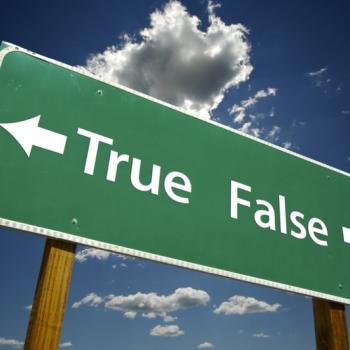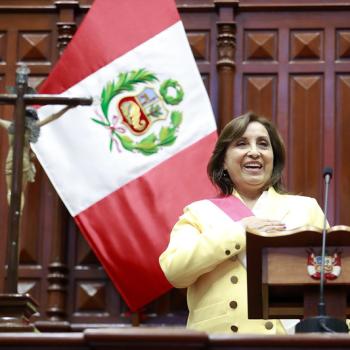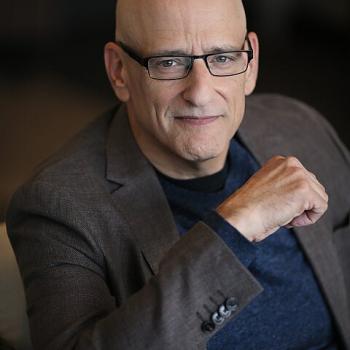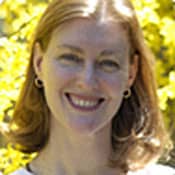Hear my prayer, LORD, listen to my cry for help; do not be deaf to my weeping. I dwell with you as a foreigner, a stranger, as all my ancestors were. ~ Psalm 39:12
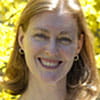 Nancy Baum is a "hearing" catechist with a B.S. in Special Education. She has taught RCIA to the Deaf for many years in the Fort Worth diocese. This year she is teaching Maria, an adult Cuban immigrant who can neither read nor write. She was born deaf, yet she knows only the most rudimentary signs. Communicating the truths of the Catholic faith to her has been a major challenge.
Nancy Baum is a "hearing" catechist with a B.S. in Special Education. She has taught RCIA to the Deaf for many years in the Fort Worth diocese. This year she is teaching Maria, an adult Cuban immigrant who can neither read nor write. She was born deaf, yet she knows only the most rudimentary signs. Communicating the truths of the Catholic faith to her has been a major challenge.
"The Deaf are very visual," says Baum. "It's not enough just to use finger-spelling and conceptual signs. We use laptops in the classroom to access images from the internet and create PowerPoint presentations to help make things clearer for them. Normally we do pretty well. But with Maria, who can't read, I was struggling. So, I called the head of Deaf Ministry for our diocese and she came to watch me work with Maria. She said my signing skills were good, but it wasn't enough."
Baum realized she needed a deaf person in the classroom. She immediately contacted her friend and colleague, Kathy Murphy, a woman deaf from birth, who facilitates an adult enrichment program called, "Why Catholic?" Kathy was happy to help and encouraged Linda, one of her best students, to volunteer for the job.
Linda signs with great expressiveness. "She signs from her soul," Baum says. "In a few seconds, she was able to effectively describe the Church hierarchy for Maria—the pope, the cardinals, the bishops, the laity—in beautiful American Sign Language (ASL)." Baum keeps working through the teachings of the Church with Maria, but whenever she finds herself struggling to be understood, Linda jumps in and clarifies the matter quickly.
Teaching is a great opportunity to strengthen one's own faith, and Baum notes that in her volunteering to help, Linda has found a chance to grow, too. This is important, because the need for deaf leaders is a matter of great concern to the Church. With a critical shortage of priests proficient in sign language and only thirteen deaf priests in the word (as of 2009), the need is dire.
The National Catholic Office for the Deaf has been advocating for deaf Catholics and their families for forty years. This January's 2011 Pastoral Week Conference took for its theme "Renewing the Vision," which reflected back upon their decades of work and progress, and focused on the work yet to be done.
"Deaf Catholics experience a form of isolation not seen by other cultural groups," said (Deb) Garner, a member of the NCOD's board of directors and Southeast regional president. "Even though parents are the primary teachers of the Catholic faith, many deaf Catholics have received little faith formation from their family due to the inability of many hearing parents to communicate with their deaf children. For this reason parents turn to the Church in greater need when they have a deaf child."
In November 2009, Pope Benedict met with 400 deaf and hearing Catholic clergy and lay people, from sixty-five different countries, many of whom work with the Deaf in various capacities. A number of recommendations were made concerning diocesan and parish service to the hearing-impaired, including that each diocese have at least one priest who is competent to serve as a liaison for the Deaf on issues of liturgy, sacraments, and catechesis, and that seminarians receive training and orientation in order to minister to the Deaf. Other suggestions involved diocesan registries of certified interpreters, vocation outreach, and more.
The Holy Father addressed the great barriers that deaf children and their families face even within the Church:
"Unfortunately experience has shown that hearing-impaired people do not always meet with ready acceptance, committed solidarity and affectionate communion," the Pontiff said. That failure to gain acceptance, he said, illustrates "the deafness of the spirit which raises ever-higher barriers to the voice of God and of our fellow man."
